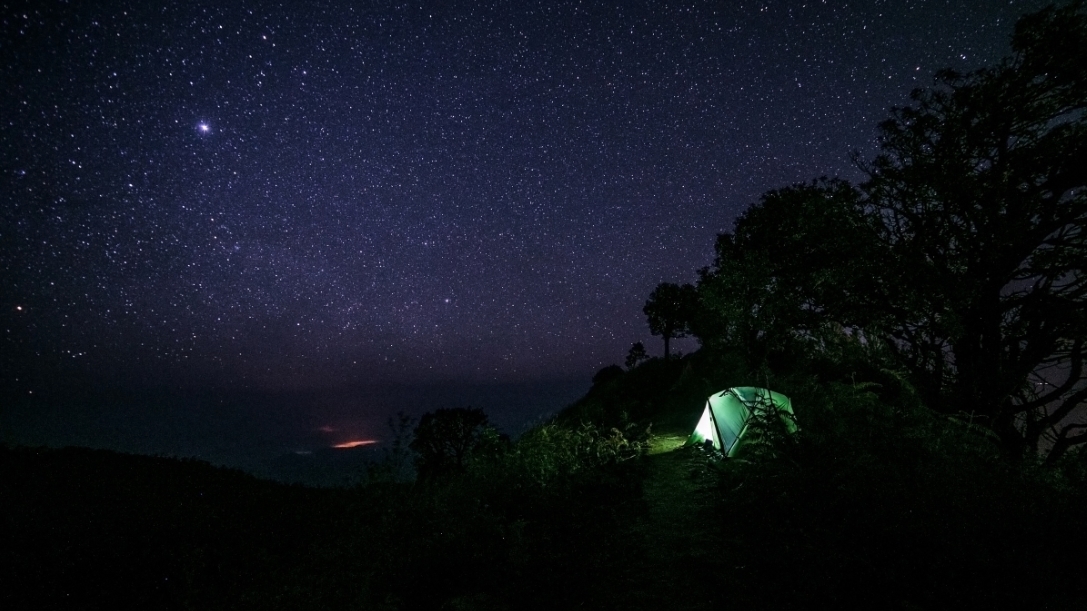Your Cart is Empty
Hey Crew! It's Daniel with Hyke & Byke.
How was your sleep last night? We hope you had a good one :) Please keep in mind to always rest to your body's needs despite your busy schedules.
Sleeping is definitely an essential part of your day, regardless of whether your in the comforts of your own home or out there on a backpacking trip. It gives your mind & body a chance to recharge and regenerate.
Camping has a string of perks that comes along with it, but it also requires a little sacrifice on your part. It takes you away from conveniences of modern living, and it keeps you away from technology for a while. However, that should not include depriving yourself of sleep and rejuvenation.
Starting a trip can be fun, but extremely exhausting... You have to walk for hours sometimes on rough terrains, carry a heavy bag, and put up a tent for yourself.
Without a good night’s sleep, it would be definitely hard to enjoy the thrills of your next day hiking.
One way to make sure that you’d be able to rest well through the night is by choosing correct gear.
1. The Right Sleeping Bag
Pick a sleeping bag with the specs suited and appropriate for your desired destination/trail.
It's important to not that there are two kinds of camping bags:
1. Car camping bags are typically cut wider, so you have more room to move around. However, they are not so good in insulating body heat, so you’re gonna have a bad time if you decided to bring this one on your next winter hike.
2. The Backpacking Bags here at Hyke & Byke are generally narrower than the car camping bags for a warmer and closer fit. It works well in retaining your body heat, so it could keep you warm even during cold nights outdoors.
Most of these sleeping bags are filled with goose or duck down because the natural fill can compress more easily than synthetic.
2. The Right Sleeping Pad
Sleeping pads come in a number of forms: self-inflating, air, closed-cell foam, etc. When you are camping in a car, weight is not an issue, so you can enjoy a thicker pad.
When camping, however, weight is an issue, so a lightweight air pad or closed-cell pad may be your best option.
3. The Right Pillows
Bring an inflatable one instead so it is not too bulky to carry. If you don’t want to bring an extra item, though, you can use your extra clothes as a pillow.
4. The Right Eye Mask and Earplugs
There is a cacophony of sounds in nature, especially at night when the nocturnal animals are active. If you don’t want to be disturbed by nature noises, you can bring a pair of ear plugs and an eye mask, to block off northern latitude lights in summer.

Another way to ensure that you’d be able to sleep well throughout the night is to properly set up your tent, so you’d be able to relax before you sleep.
Here are a handful of tips:
1. Pick a Smooth Surface
It does not take a genius to figure out that if you put up your tent on a rocky surface, you would not get any sleep, and worse, leave you sore in the morning.
Bring a handy source of light – For first time campers, the darkness of the night in the wilderness can be pretty daunting and paranoia-inducing.
To settle your fears of being mauled in pitch-black darkness, keep a flashlight in your tent or put an LED headlamp over your head.
2. Keep Your Routines
Continuing the routines that you do in your home into your camping could give you a sense of normalcy and reassurance.
3. Don’t Keep Food Inside Your Tent
Keep your food outside because their scent may attract wild and hungry animals to your tent. Be extra vigilant when your camping grounds have bears around.
Bears may look cuddly, but if you watched The Revenant, you might not want to be near one… especially when it’s hungry.
4. Drink Something Warm Before You Sleep
Drink something warm, but not hot. Warm drinks like milk or cocoa will soothe you and help you sleep easier.
Be careful as too hot of drinks can make you sweat and feel uneasy.
5. Keep the Bugs Away
You can’t have a campsite without bugs; you have to understand that you co-exist in this world.
Most of the times, however, they do not have an idea of what personal space is all about. The good news is you can avoid them.
You can set-up your campsite away from ponds, lakes, and other bodies of water.
Also, avoid scented cosmetics. Perfume mixed with your body will make you so very attractive to mosquitoes.
6. Learn to Adapt
Backpacking and hiking wouldn’t be so much fun if you just walked around and did not challenge your comfort zone.
You’re cut off from the conveniences of your modern life, so you have to be creative and make the most out of what you’ve got.
----------
Please remember these tips on your next trip!
Rest well and keep in mind that no one likes a cranky camper. ;)
Sincerely,
Daniel | Founder
Hyke & Byke #GearThatGives
P.S. Having a high-quality tent can be the difference between enjoying the sound of rain on your tent vs. rolling around in a freezing muddy puddle.
Invest in your future comfort (and sanity!) with anyone of our Hyke & Byke Backpacking Tents!
Comments will be approved before showing up.
